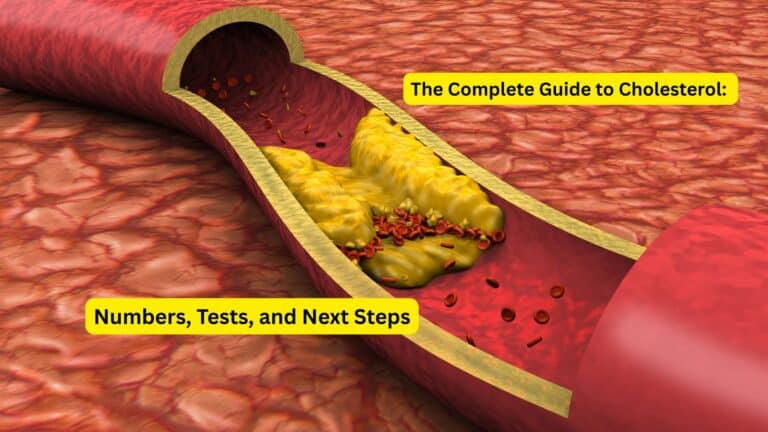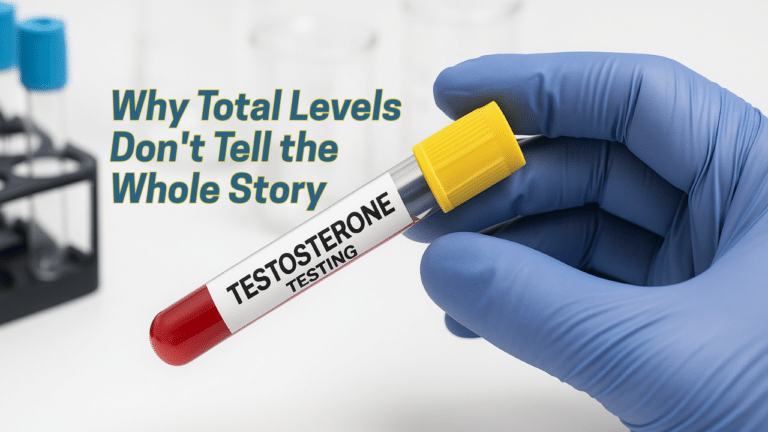Your adrenal glands may be small, but their impact on your daily energy and stress response is enormous. These walnut-sized organs, perched atop each kidney, work tirelessly to produce hormones that regulate everything from your morning alertness to how your body handles challenging situations. Yet despite their critical role, adrenal health remains one of the most misunderstood aspects of wellness, with conflicting information about conditions like “adrenal fatigue” creating confusion for those seeking answers to persistent tiredness and stress-related symptoms.
Understanding how your adrenal glands function, recognizing the difference between controversial diagnoses and medically validated conditions, and learning practical strategies to support these vital organs can transform your approach to managing energy and stress. Whether you’re experiencing unexplained fatigue or simply want to optimize your body’s natural resilience, the key lies in combining evidence-based knowledge with targeted lifestyle strategies and appropriate testing when needed.
Understanding Your Adrenal Glands and Cortisol Patterns
The adrenal glands serve as your body’s built-in stress management system, orchestrating a complex dance of hormones that keeps you functioning optimally throughout the day. When working properly, these glands seamlessly coordinate your energy levels, immune responses, and ability to handle both physical and emotional challenges. The intricate relationship between stress, energy, and adrenal function forms the foundation of how you feel and perform daily.
How Adrenal Glands Work
Your adrenal glands consist of two distinct parts: the outer cortex and the inner medulla, each producing different hormones crucial for survival. The cortex manufactures cortisol, aldosterone, and sex hormones, while the medulla produces adrenaline and noradrenaline for immediate stress responses. These hormones work together to regulate blood sugar levels, control inflammation, maintain blood pressure, and support your metabolism. When functioning optimally, this system allows you to wake up energized, handle daily stressors effectively, and wind down naturally for restorative sleep.
The production of these hormones follows precise feedback loops involving your hypothalamus and pituitary gland, collectively known as the HPA axis. This communication network ensures that hormone levels adjust appropriately to your body’s changing needs throughout the day and in response to various stressors.
The Natural Cortisol Rhythm
Cortisol, often called the “stress hormone,” actually serves as your body’s natural alarm clock and energy regulator when functioning normally. Healthy cortisol follows a predictable diurnal pattern, peaking within 30 minutes of waking and gradually declining throughout the day, helping you feel alert in the morning and naturally tired by evening. This rhythm supports optimal metabolism, immune function, and cognitive performance while preparing your body for restorative sleep.
The morning cortisol surge helps mobilize glucose for energy, increases blood pressure to support circulation, and sharpens focus for the day ahead. As evening approaches, declining cortisol levels signal other hormones like melatonin to increase, facilitating the transition to sleep. This natural ebb and flow creates a sustainable energy pattern that supports both productivity and recovery.
What Disrupts Normal Patterns
Modern life presents numerous challenges to maintaining healthy cortisol rhythms, with chronic stress being the most significant disruptor. Prolonged work pressures, relationship difficulties, financial concerns, or health issues can cause cortisol levels to remain elevated when they should naturally decline, or conversely, become insufficient when energy demands are high. Poor sleep quality, irregular schedules, excessive caffeine consumption, and inadequate nutrition further compound these disruptions.
Illness, whether acute infections or chronic conditions, can also alter adrenal function as the body redirects resources toward healing. Additionally, certain medications, particularly corticosteroids used long-term, can suppress natural adrenal hormone production, potentially leading to dependency issues when discontinued.
Distinguishing Adrenal Fatigue from Adrenal Insufficiency
The conversation around adrenal health often centers on two vastly different concepts that share similar symptoms but require entirely different approaches. Understanding this distinction is crucial for anyone experiencing persistent fatigue, as it determines whether you need lifestyle modifications, medical intervention, or both. The confusion between these conditions has led many people down ineffective treatment paths, highlighting the importance of evidence-based evaluation.
The Adrenal Fatigue Controversy
“Adrenal fatigue” has gained popularity in alternative health circles as an explanation for chronic tiredness, brain fog, sleep disturbances, and sugar cravings. Proponents suggest that prolonged stress “exhausts” the adrenal glands, causing them to produce insufficient cortisol. However, this concept lacks scientific validation and is not recognized by major medical societies, including the Endocrine Society. The symptoms attributed to adrenal fatigue often overlap with numerous other conditions, including depression, sleep disorders, thyroid dysfunction, and nutritional deficiencies.
The appeal of the adrenal fatigue diagnosis lies in its seemingly logical explanation for modern life’s toll on energy levels. Unfortunately, this can delay proper evaluation and treatment of underlying conditions that actually cause these symptoms. While chronic stress undoubtedly affects health, the idea that it causes adrenal “exhaustion” oversimplifies the complex nature of hormonal regulation.
Medically Recognized Adrenal Insufficiency
Adrenal insufficiency represents a genuine medical condition where the adrenal glands cannot produce adequate amounts of essential hormones, particularly cortisol. This condition manifests as persistent fatigue, muscle weakness, unintentional weight loss, low blood pressure, nausea, and darkening of skin in certain areas. Studies indicate that up to 5% of patients presenting with fatigue have adrenal insufficiency, emphasizing the importance of proper medical evaluation.
Primary adrenal insufficiency (Addison’s disease) occurs when the adrenal glands themselves are damaged, while secondary insufficiency results from problems with the pituitary gland’s hormone signals. Both forms require hormone replacement therapy and ongoing medical management to prevent potentially life-threatening complications.
Why Proper Testing Matters
Distinguishing between nonspecific fatigue symptoms and true adrenal insufficiency requires appropriate medical testing and evaluation. Blood tests measuring cortisol levels at different times of day, along with ACTH stimulation tests, can definitively diagnose adrenal insufficiency. This testing is essential because the treatment approaches differ dramatically: true adrenal insufficiency requires lifelong hormone replacement, while symptoms attributed to “adrenal fatigue” typically respond better to lifestyle interventions addressing underlying causes.
Research shows that around 60% of individuals reporting symptoms consistent with “adrenal fatigue” actually have underlying conditions such as depression, sleep disorders, or hypothyroidism that mimic these symptoms. Proper evaluation can identify these treatable conditions, leading to more effective interventions and improved quality of life.
Natural Strategies for Supporting Adrenal Health
While true adrenal insufficiency requires medical treatment, supporting healthy adrenal function through lifestyle modifications can significantly impact energy levels and stress resilience. These evidence-based strategies work by reducing unnecessary stress on your adrenal glands while providing the foundational support they need to function optimally. The key lies in creating sustainable habits that address multiple aspects of health simultaneously, from sleep quality to nutritional support.
Foundational Lifestyle Strategies
Quality sleep forms the cornerstone of adrenal health, as disrupted sleep patterns directly interfere with natural cortisol rhythms. Establishing consistent sleep and wake times, creating a relaxing bedtime routine, and optimizing your sleep environment can help restore healthy hormonal patterns. Aim for 7-9 hours of sleep nightly, and consider limiting screen exposure in the evening to support natural melatonin production.
Nutrition plays an equally important role in supporting adrenal function. A balanced diet rich in whole foods provides the building blocks necessary for hormone synthesis, including adequate protein, healthy fats, and essential micronutrients like vitamin C, B-complex vitamins, and magnesium. Regular, balanced meals help stabilize blood sugar levels, reducing stress on the adrenal glands throughout the day.
Regular physical activity supports adrenal health by improving stress resilience and promoting better sleep, but the type and intensity matter significantly. Moderate exercise like walking, swimming, or yoga can be beneficial, while excessive high-intensity training may add additional stress to already compromised systems. Listen to your body and adjust activity levels based on energy and recovery capacity.
The Role of Adaptogens
Adaptogens represent a class of herbs and natural compounds that may help the body better manage stress responses, though scientific evidence remains mixed. Clinical trials investigating popular adaptogens report reductions in subjective fatigue levels by up to 20-30%, though sample sizes and methodologies vary considerably across studies. Ashwagandha, rhodiola, and ginseng are among the most studied adaptogenic herbs, each showing promise in different areas of stress management and energy support.
Ashwagandha has demonstrated potential benefits for reducing cortisol levels and improving stress-related symptoms in several studies. Rhodiola may help with mental fatigue and cognitive function under stress, while various forms of ginseng have shown effects on energy and immune function. However, these supplements can interact with medications and may not be appropriate for everyone, particularly those with certain medical conditions.
It’s important to view adaptogens as complementary tools rather than primary treatments. They work best when combined with foundational lifestyle strategies and should be used under professional guidance, especially if you’re taking medications or have underlying health conditions.
Avoiding Common Adrenal Stressors
Certain lifestyle factors can unnecessarily stress the adrenal glands, undermining even the best supportive efforts. Excessive caffeine consumption, particularly later in the day, can disrupt natural cortisol rhythms and interfere with sleep quality. While moderate caffeine intake may be fine for most people, those experiencing adrenal-related symptoms may benefit from reducing or timing their consumption more strategically.
Chronic under-eating or extreme caloric restriction places significant stress on the adrenal glands as they work to maintain blood sugar stability and energy production. Similarly, excessive alcohol consumption can interfere with sleep quality and hormone production. Blood sugar swings from irregular eating patterns or high-sugar foods also require increased adrenal hormone production to maintain stability.
Managing emotional and psychological stress through techniques like meditation, deep breathing exercises, or counseling can significantly reduce the burden on your adrenal glands. While some stress is unavoidable, developing healthy coping mechanisms prevents chronic activation of stress response systems.
Testing Options and Medical Guidance
Appropriate testing plays a crucial role in understanding adrenal function and distinguishing between various causes of fatigue and stress-related symptoms. Modern laboratory testing offers several approaches to evaluate adrenal hormone levels, each with specific advantages and applications. Understanding these options empowers you to work effectively with healthcare providers and make informed decisions about your health assessment needs.
Walk-In Lab provides convenient access to comprehensive adrenal function panels that measure key hormones like cortisol and DHEA-S through blood, saliva, or urine testing. These tests can reveal patterns that help identify whether symptoms stem from hormonal imbalances, guide appropriate interventions, or indicate the need for further medical evaluation. Cortisol testing throughout the day can reveal disrupted circadian rhythms, while DHEA-S levels provide insight into overall adrenal reserve and function.
Saliva testing offers the advantage of measuring “free” or active hormone levels and can be performed at home at multiple time points throughout the day. Blood testing provides standardized reference ranges and is often preferred by healthcare providers for diagnostic purposes. Twenty-four-hour urine collection offers a comprehensive view of hormone production over an extended period, though it requires more commitment to complete accurately.
The timing of testing matters significantly, as cortisol levels naturally fluctuate throughout the day. Morning cortisol levels should be highest, while evening levels should be low. Testing at inappropriate times can lead to misleading results, so following specific collection instructions is essential for accurate interpretation.
When persistent fatigue accompanies symptoms like unexplained weight loss, low blood pressure, nausea, or muscle weakness, prompt medical evaluation becomes crucial. These symptoms may indicate adrenal insufficiency or other serious conditions requiring immediate attention. Healthcare providers can perform additional specialized tests, such as ACTH stimulation tests, to definitively diagnose adrenal disorders and develop appropriate treatment plans.
Frequently Asked Questions
What’s the difference between adrenal fatigue and adrenal insufficiency?
Adrenal fatigue is a popular but medically unrecognized concept suggesting that chronic stress “exhausts” the adrenal glands, causing mild dysfunction. In contrast, adrenal insufficiency is a verified medical condition where the adrenal glands genuinely cannot produce adequate hormones, requiring hormone replacement therapy and ongoing medical management. The symptoms may overlap, but the underlying causes, diagnostic criteria, and treatments differ significantly.
What symptoms might suggest problems with adrenal function?
Common symptoms include persistent unexplained fatigue, difficulty waking up despite adequate sleep, muscle weakness, low blood pressure, salt cravings, brain fog, mood changes, and sleep disturbances. However, these symptoms can also indicate numerous other conditions, including thyroid disorders, depression, sleep apnea, or nutritional deficiencies, making proper evaluation essential for accurate diagnosis.
How does cortisol affect my energy and stress levels?
Cortisol acts as your body’s natural energy regulator, normally rising in the morning to promote alertness and gradually declining throughout the day to facilitate sleep. When this rhythm becomes disrupted due to chronic stress, illness, or poor lifestyle habits, you may experience morning fatigue, afternoon energy crashes, difficulty handling stress, and sleep problems. Restoring healthy cortisol patterns often improves energy levels and stress resilience.
Are adaptogens safe and effective for adrenal support?
Some adaptogens like ashwagandha and rhodiola have shown promise in research for reducing stress-related symptoms and supporting energy levels, but more rigorous studies are needed to establish definitive recommendations. While generally considered safe for most people, adaptogens can interact with medications and may not be appropriate for everyone. They work best as part of a comprehensive approach that includes lifestyle modifications and should be used under professional guidance.
When should I seek testing or medical advice for adrenal-related concerns?
Consider professional evaluation if you experience persistent unexplained fatigue along with symptoms like unintentional weight loss, low blood pressure, muscle weakness, or nausea. Additionally, if lifestyle modifications haven’t improved energy levels after several months, or if symptoms significantly impact your daily functioning, testing can help identify underlying causes and guide appropriate interventions.
Taking Control of Your Adrenal Health
Your adrenal glands serve as the command center for your body’s stress response and energy regulation, making their health crucial for overall well-being and daily functioning. While the controversy surrounding “adrenal fatigue” continues, the evidence clearly supports focusing on medically recognized conditions and evidence-based strategies for supporting optimal adrenal function. The combination of healthy lifestyle practices, appropriate testing when indicated, and professional medical guidance when symptoms warrant provides the most effective approach to addressing adrenal-related concerns.
Remember that persistent fatigue and stress-related symptoms deserve proper evaluation rather than self-diagnosis based on popular but unproven concepts. True adrenal insufficiency, though less common than nonspecific fatigue, requires medical treatment and can be life-threatening if undiagnosed. Conversely, many symptoms attributed to “adrenal fatigue” often improve significantly with targeted lifestyle interventions that address underlying causes like poor sleep, chronic stress, or nutritional imbalances.
The journey to optimal adrenal health begins with understanding your body’s unique needs and patterns. Consider ordering comprehensive adrenal function testing through Walk-In Lab to gain valuable insights into your cortisol and DHEA-S levels, providing objective data to guide your health decisions. Combined with sustainable lifestyle strategies that support your body’s natural stress response, this proactive approach can help you reclaim your energy and build lasting resilience against life’s inevitable challenges.
Ready to take the first step toward understanding your adrenal health? Order your comprehensive adrenal function test today and start your journey toward optimized energy and stress resilience.





